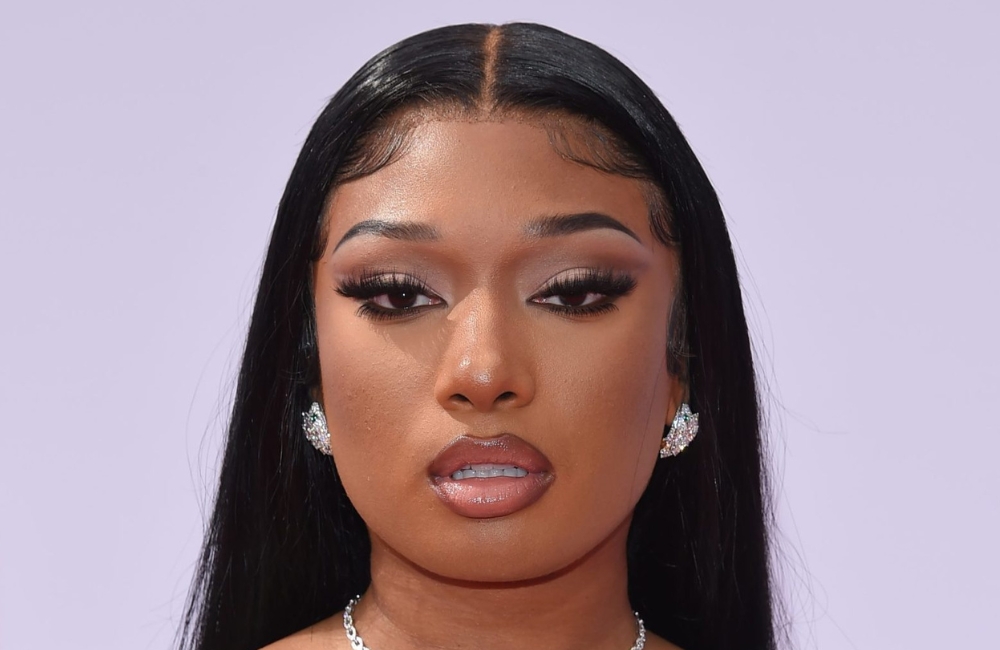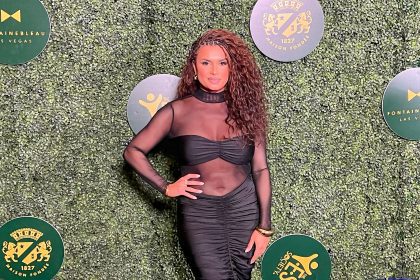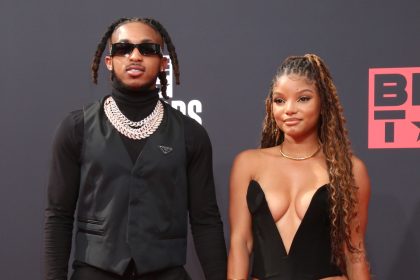An interview between comedian Hannah Berner and rapper Megan Thee Stallion at a post-Oscars event has ignited substantial criticism across social media platforms, with viewers expressing concern over perceived insensitive remarks during their exchange.
The incident occurred during Vanity Fair’s coverage of their renowned Oscars after-party, where Berner, alongside her “Giggly Squad” podcast co-host Paige DeSorbo, conducted red carpet interviews with attending celebrities. What began as an enthusiastic greeting quickly shifted into controversial territory when Berner made comments connecting the artist’s music to feelings of aggression.
The controversial exchange
Berner, a former reality television personality from Bravo’s “Summer House,” expressed her admiration for the Grammy-winning artist in a manner that many viewers later found problematic, suggesting that the rapper’s music made her want to fight someone.
Megan Thee Stallion, whose legal name is Megan Jovon Ruth Pete, appeared to redirect the conversation away from fighting references. Her response indicated a preference to focus on confidence and empowerment rather than aggression.
Despite this apparent redirection, Berner continued with the fighting theme, reinforcing her association between the artist’s music and confrontational feelings. The rapper responded by referencing lyrics from her hit song “Body,” seemingly shifting the focus toward the empowering aspects of her artistry rather than aggression.
Social media response
The interview segment, which Vanity Fair posted to their TikTok account, quickly accumulated comments from viewers who felt the exchange was inappropriate. Many commenters identified what they described as microaggressions in Berner’s approach.
- Multiple top comments demanded an end to Berner’s presence as an interviewer, indicating widespread dissatisfaction with her approach.
- Numerous viewers characterized the exchange as microaggressive, noting that the rapper’s music isn’t focused on fighting themes, and criticizing the interviewer’s approach to the conversation.
- Some responders used direct language in their criticism, implying racial insensitivity in the interaction.
- Several users accused the hosts of talking over the artist and inappropriately characterizing her music as violent, with special concern given that the rapper herself has been a victim of violence.
- Commentary across the platform characterized the interviewer’s remarks as overtly problematic rather than subtle microaggressions.
- Viewers also praised the rapper’s handling of the situation, noting her redirection away from stereotypical characterizations.
- The criticism extended beyond the original post, appearing in comments on unrelated Vanity Fair content featuring the artist, with demands for accountability and apologies.
Historical context
The controversy holds particular weight given Megan Thee Stallion’s personal history. In 2020, the rapper was shot in the foot, an incident that led to the conviction of rapper Tory Lanez. He was sentenced to ten years in prison for the attack.
During the interview, Berner alluded to this history by asking how the rapper remains resilient and inspiring despite facing adversity. This question came after the comments about fighting, creating what many viewers perceived as an insensitive juxtaposition.
The larger conversation
The incident has sparked broader discussions about red carpet interview protocols and the preparation of hosts for engaging with diverse celebrities. Critics suggest that interviewers should research their subjects thoroughly to avoid perpetuating stereotypes or making culturally insensitive remarks.
Despite the negative reception online, the in-person interaction appeared cordial throughout. At one point, DeSorbo commented on Berner’s enthusiasm regarding her co-host’s passionate demeanor during the conversation.
However, the online response demonstrates a growing awareness and decreased tolerance for perceived microaggressions in entertainment media, particularly in high-profile settings like awards season coverage.
Industry standards and accountability
The incident raises questions about the vetting and training of red carpet correspondents, particularly those who may not come from traditional journalism backgrounds. Both Berner and DeSorbo achieved fame through reality television before transitioning to podcasting and media coverage roles.
Entertainment industry observers note that the selection of interviewers for prestigious events like Oscars after-parties typically considers both journalistic credentials and potential viewer appeal, sometimes creating tension between these priorities.
Vanity Fair, a publication with a long history of prestigious Oscars coverage, now faces pressure from social media users to address the controversy. Comments on their platform have explicitly called for public accountability and formal responses to the situation.
Ongoing developments
As of publication time, representatives for Berner, Megan Thee Stallion, and Vanity Fair had not responded to requests for comment on the controversy.
The incident illustrates the evolving nature of celebrity interviews in the digital age, where red carpet moments can quickly become the subject of intense scrutiny across social platforms. What happens in brief exchanges now lives permanently online, where viewers can analyze and critique interactions from multiple perspectives.
Media and entertainment professionals now navigate an environment where audience feedback is immediate and public, creating new standards for interviewer conduct and sensitivity, particularly when discussing artists from diverse backgrounds or those who have experienced trauma.
Whether this controversy will impact future red carpet coverage decisions remains to be seen, but the volume and intensity of the response suggest that viewers increasingly expect interviewers to approach celebrity conversations with greater cultural awareness and sensitivity.
The dialogue surrounding this incident continues to evolve on social media platforms, where users remain engaged in discussions about appropriate interview conduct and the responsibilities of media organizations when selecting and preparing their red carpet representatives.











